
The idea of progress was developed during the French Enlightenment as an optimistic belief in human potential encompassing intellectual, physical and spiritual health within an enlightened society working to maximize happiness. Progress became equated to and then supplanted by economic growth, assumed to be the means to that progress. We are now suffering from that assumption. It is time to acknowledge the limitations, the failings and the costs of economic growth as a means to bettering society. We need to take the opportunity, thrust upon us by environmental impacts to de-throne growth in order to reclaim human potential for social progress, increase happiness and maybe even save the planet.
Continue Reading
I wouldn’t want to try and mimic the elegant, eloquent and erudite arguments that every one of our authors makes for the unsurpassable power of experience in the educational process. In my own discipline, the Biological Sciences, I need look no further than the unstoppable force of the teaching laboratory, to know this truth. How do we get people to change, to do the right thing, to quit smoking, to wear seat belts, to learn something as complicated as heart surgery or sequencing DNA. How do we teach people to become outstanding members of society concerned about improving everyone’s quality of life: we can try teaching it a million different ways, but until they actually do it, the change has yet to happen!
Continue Reading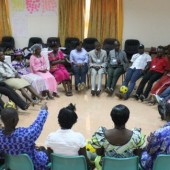
Recent systematic studies of the environmental movement in Ghana have revealed an apparent disconnect between environmentally focused civil society organizations and local academia. This disconnect has implications on both the study of the social dimension of environmental issues and the lack of academic literature on the subject. It is my opinion that the bridging of this gap has potential benefits for both civil society and the development of environmental social science.
Continue Reading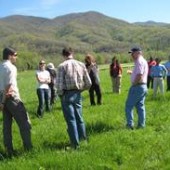
Sustainability Education is intended to provide learning, training, and practical experience, in both formal and non-formal settings, that fosters personal development, community involvement, and action for change in our human and natural worlds. Grounded in our experience of the world, Sustainability Education must mirror both the patterns present in our natural environment and the conditions present in our human society with the intention of preparing us for uncertain and rapidly transforming world conditions. Nature is the source of our identity as living beings and society the medium for expressing this. The conditions and needs for our survivability as a species and society will change depending on circumstances and through events that may be outside our control. Our success will depend upon our ability to respond in ways that value personal initiative, responsibility, creativity, commitment, and collaboration with others.
Continue Reading
Project-based community service learning increases the effectiveness of sustainability education and demonstrates the importance of providing children with opportunities to be healthy, happy and eco-literate global citizens. At Wright State University, as students learned environmental and socio-economic content, they became informed citizens who were empowered as local change agents. Insights from these case studies illustrate how we can engage college students to foster skills as informed decision-makers and engaged future teachers. Examples of curricular models are proposed for educators and students to effectively address environmental dilemmas by integrating scientific content knowledge with civic engagement to best prepare sustainably literate citizens.
Continue Reading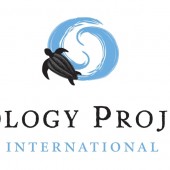
Ecology Project International (EPI) is a non-profit organization dedicated to developing place-based, ecological education partnerships between local experts and high school students to address critical conservation issues. This photo essay depicts local students in action at EPI’s programs in Baja California Sur – Mexico, the Galapagos Islands – Ecuador, and the Greater Yellowstone Ecosystem. The photos show students engaging in field science, applied conservation, and sustainability-related activities geared toward helping them develop environmental literacy.
Continue Reading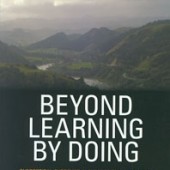
eview of Roberts. J. W. (2012). Beyond Learning by Doing: Theoretical currents in experiential education. New York, NY: Routledge. 129 pages. ISBN 978-0-415-8828-8
Continue Reading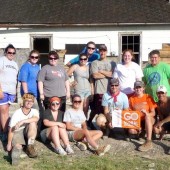
After Hurricane Katrina devastated parts of the Gulf Coast, Susquehanna University (SU) responded by launching the Hurricane Relief Team (HRT) program. In the past six years, SU has sent 16 teams of 15-20 students each and the program has evolved from a basic volunteer service opportunity into a service-learning experience and later into a two-week, cross-cultural service-learning program. While this study is not designed to determine whether participation in HRT, as a specific program, impacted graduation rates, it is intended to provide support for the correlation between civically engaged students and persistence to graduation. Through this example of a cross-cultural, service-learning program, the examination of graduation rates of HRT participants provides evidence of the potentially transformative nature of the experience as derived from historical data.
Continue Reading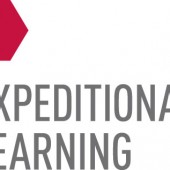
Millions of youth in the United States today are mandated to go to “work” daily. Indoor spaces, hard, plastic seats, and inauthentic menial tasks characterize their workplace. In a time in which the life support systems of our planet are imperiled and more humans are living in communities of poverty and violence, there exists an absurd disconnect between how education is currently practiced and the education that is needed to facilitate deep cultural revolution. Our teachers are taught to teach using the same irrelevant pedagogies, sitting in rows inside institutions of higher learning, taking notes, and memorizing disconnected facts for regurgitation on multiple-choice exams. My argument is that we are not going to be able to implement any true attempts in sustainability education without concomitant change in the way we teach teachers. While publicly funded schools still provide an equalizing agent to potentially provide opportunity for all children regardless of their race or social class, no school can truly educate children to meet the coming demands of our time without experiential teacher education. Expeditionary Learning, a national reform model for public schools, creates lasting change in the praxis of teaching by creating opportunities for teachers to learn in a different way than they have often been taught as students themselves. With continued coaching when they return to their classrooms, teachers are able to create learning environments embodying inquiry and authenticity so that our youth are empowered to affect societal change.
Continue Reading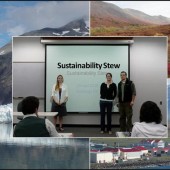
The concepts and practices surrounding sustainability are increasingly the focus of many new post-secondary and graduate education programs. However, the term sustainability refers to a complex mixture of disciplines, methods, contexts, and topics. This complexity is often confusing and can create barriers to learning. Comprehensive understanding of sustainability issues requires that students engage in an active learning process, focusing on context and perspective. Our “Sustainability Stew” curriculum, designed by doctoral students in various fields related to sustainability, is intended to guide sustainability education while offering the freedom to explore complex issues in an active, project-based learning environment. In this paper, we provide background and details for the design of the Sustainability Stew Guide and report results from student surveys on the curriculum itself from one undergraduate sociology course at the University of Alaska Fairbanks (n=37), one community college course at Delaware Technical and Community College (n=11), and one graduate-level research group at the University of Delaware (n=7). Student survey results and instructor reports suggest that the Sustainability Stew curriculum is an effective and innovative approach to sustainability education. Finally, we offer analysis and future directions for similar post-secondary sustainability education. Our objective is to offer a novel exercise to aid educators in teaching and discussing the concepts of sustainability in a way that encourages critical, multi-disciplinary engagement.
Continue Reading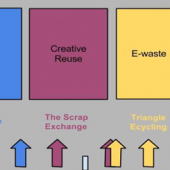
Sustainability capstones at UNC-Chapel Hill use the environmental capstone model—senior team projects for clients—to tackle problems with clear social and economic dimensions in addition to environmental. As one of a set of applied-learning course options in sustainability education, capstones draw students into data-driven and policy-relevant research and development, and generate useful products for campus and community clients.
Continue Reading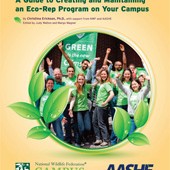
As sustainability peer educator programs continue to develop on college and university campuses, it is important to consider how such programs define and manifest sustainability within their operations. In this article I review a guide, recently published by two international associations, for developing sustainability peer educator programs, and argue that it signals an insufficient approach to sustainability within such programs and that more attention is needed on the economic and social dimensions of sustainability.
Continue Reading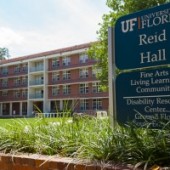
In order to state their commitment to sustainability, colleges and universities across the United States are signing environmental charters which emphasize the importance of incorporating environmental issues into education, research, operations, and outreach. As a signatory of several charters, the University of Florida (UF) has taken a particular interest in greening their student housing and has made considerable progress in retrofitting a housing stock over 100 years old. However, despite the implementation of sustainable practices throughout their residence buildings the university has continued to identify areas needing further improvement. As participants in the U.S. Green Building Council’s (USGBC) Research to Practice (R2P2) program, which aims to engage the educational community in a variety of on-campus research, a team of UF students and faculty utilized the opportunity to investigate obstacles faced in enhancing student housing performance. This case study reports on the pedagogy used by this team to assess the efficacy of applicable sustainable strategies and the environmentally significant behaviors of residents within three residence halls. This pedagogy aimed to first, involve students in project-based learning (PBL); and second, to provide a service to the university by contributing to its efforts to green the campus. Findings of this study illustrated a number of methods for improving building performance. Additionally, as pedagogy, PBL was found in this study to set the stage for acquisition of Gestaltungskompetenz—the organizational, participatory, collaborative, interdisciplinary, and reflection competencies necessary for sustainable development. However, while these findings offer great promise for improving sustainable practices and education, more focused research is needed to explore the challenges and opportunities of their application. Therefore, this study is an invitation to further our exploratory research and continue the discovery of applications for the PBL model in sustainability education.
Continue Reading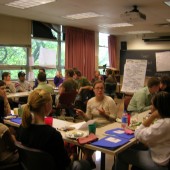
This article examines how an experiential education opportunity affected leadership development of a young adult over a five-year time period. The individual participated in a series of authentic environmental leadership activities which emphasized direct experience, peer-to-peer mentoring, and youth-adult partnerships. We illustrate how sustainability educators and planners can engage youth in meaningful leadership activities and encourage long-term leadership cultivation. Challenges to facilitating environmental youth leadership are also addressed, including relating to and providing appropriate support for adolescents and young adults.
Continue Reading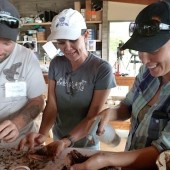
We are faced with a multitude of environmental challenges today, including sustainable food, water, land, and energy resources. As we strive to understand and address these resource issues, we become keenly aware that there are neither quick fixes nor short-term solutions. Consequently, these resource issues will be handed down from this generation to the next—and to the next—for progressive resolution. Therefore, our students need to have an education grounded in STEM (science, technology, engineering, and mathematics) that will prepare them to become the systems thinkers, critical analyzers, and creative problems solvers that living sustainably on this planet demands. In order to benefit from such an education, our students require teachers who are not only well-trained in STEM concepts and skills but also understand how to create authentic, standards- and experienced-based learning activities for their students in meaningful educational settings. To address this requirement, a year-long, experience-based School Learning Gardens Professional Development Program was created for teachers, implemented by the The Kohala Center’s Hawaiʻi Island School Garden Network on the Big Island of Hawaiʻi, and funded through a USDA/SPECA “Ag in the Classroom K-12” grant. This study was conducted with the 29 classroom and school learning garden teachers who participated in the week-long teacher training workshop component of the program. The study examined teachers’ attitudes toward sustainability education before and after the workshop. Teachers’ attitudes were measured using the Teachers’ Attitudes Related to Sustainability Education survey. Findings revealed that there was a statistically significant increase in teachers’ overall attitudes toward sustainability education, as well as their attitudes related to productivity and comfort within sustainability education.
These findings were viewed as an essential first step in assuring that teachers were prepared and willing to provide students with meaningful, experience-based school learning garden activities that hold promise for an environmentally-sound and resource-sustainable future for generations to come.
Continue Reading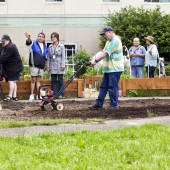
Experiential and inclusive sustainability leadership practices in learning garden programs can lead to increased community food security. This recent study shows that Oregon Food Bank’s Seed to Supper program increases food literacy, builds social capital, and creates opportunities for fostering inclusive leadership in learning garden communities. Through a mixed-methods community-based research process, the study found that learner empowerment through food literacy and sustainability leadership increased access to locally-grown foods for food insecure populations. The leadership model discussed in this paper uses the concept of the web of inclusion (Helgesen, 1990) as a framework for discussing the intricate social networks within the Seed to Supper program.
Continue Reading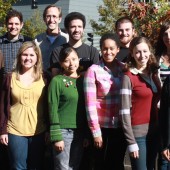
This article discusses the evolution and work of Brown University’s Climate and Development Lab (CDL). As leaders of the CDL, we engaged students in experiential education while attending the United Nations climate change negotiations in Cancun, Mexico in 2010, and in Durban, South Africa in 2011. Simultaneously, we collaborated with students to provide relevant and timely research and public scholarship oriented by the goal of advancing global justice in international climate change policy. Here we offer a conceptualization of our pedagogy for the CDL, which is a synthesis of two guiding principles: ‘engaged education’ and ‘global just sustainability’. We discuss the ways in which we organized the CDL in relation to this pedagogy and everyday logistics, and reflect upon our accomplishments and the challenges that we faced. We argue that while there are areas where we can improve upon our practice, the potential of this type of learning is considerable, and can be complementary to producing scholarly outputs that contribute to a more just and sustainable world.
Continue Reading
This article presents a case study of a collaborative project between the energy manager and a sociology professor at a small liberal arts college. Introductory sociology students designed and disseminated a survey on energy use at the college and found a disconnect between attitudes and behavior in energy use. While these results were not surprising, this exercise allowed the students to not only learn research methods but students also reported an increasing awareness of their own knowledge and practices in using energy. We believe this type of exercise, using one’s disciplinary methods with an engaged learning project, would be a useful vehicle for teaching sustainability in a variety of disciplines not normally associated with the environment or sustainability.
Continue Reading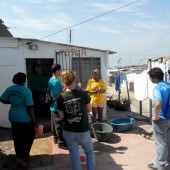
It is widely acknowledged that the sustainability challenges facing the world require new approaches to teaching and learning. At the community level, however, sustainability priorities are context specific, so prescriptions of what and how to teach for sustainability are limiting. In higher education, one innovative approach to sustainability education that acknowledges the limits of conventional coursework involves courses based on “shared action learning” – a process in which students, faculty, and community sponsors share learning experiences while working on sustainability projects for a specific community. Shared Action Learning can be applied in any community context near or far from campus ranging from the very local campus community to distant settlements across the globe. This paper describes the processes, opportunities and challenges of shared action learning through five stages: (1) project impetus, (2) contextual research and project planning, (3) community engagement and project refinement, (4) action, and (5) reflection and reporting. The roles of students, faculty, sponsors, and communities throughout the semester-long shared action learning project are explored through two examples – a course at Clark University in Worcester, MA that focuses on SAL within the college campus community and a Worcester Polytechnic Institute program through which students work on projects with partners in informal settlements in Cape Town, South Africa.
Continue Reading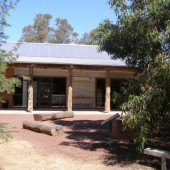
Place-based education is education that is “grounded in the resources, issues, and values of the local community and focuses on using the local community as an integrating context for learning at all levels” (Powers, 2004, p. 17). The purpose for becoming conscious of places in education is to extend “notions of pedagogy and accountability outward, toward places” making learning more relevant to “the lived experiences of students and teachers… so that places matter to educators, students and citizens in tangible ways” (Gruenewald, 2003, p. 620). Although place-based education is interchangeable with a number of terms – community based learning, rural education, project-based learning, service learning, and sustainability education – it encompasses a broad hope by educators to connect student learning to their community and the community to participate in the school (Powers, 2004). Situated within this partnership between school and community fostered through place-based education is the opportunity for rural-regional sustainability. In particular, the case study showcases how a school and community in rural south-east Australia have regenerated a degraded community stock-reserve to ‘tear down’ the school walls (fences) and perform place through the (co)creation of the Flatlands Nature Reserve as a place of protection, regeneration and environmentally sustainable practices. Furthermore, the story of the Flatlands Nature Reserve shows that “place is not only local, specific and static” but can be seen as a ‘revitalizing of the commons’ (Bowers, 2005) which has co-created a place of bio-diversity, regeneration and sustainability education that has fostered rural-regional sustainability.
Continue Reading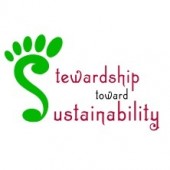
There are unique challenges in sustainability education that many in administrative and decision-making positions may not fully understand. While there is a general movement toward interdisciplinary curriculum design in colleges and universities, what may truly be needed to effectively address sustainability issues is trans-disciplinary curriculum design. Using my experience in creating the Stewardship Toward Sustainability certificate program at Ferrum College as a launch point, I discuss solutions to overcoming conceptual and political barriers in this process.
Continue Reading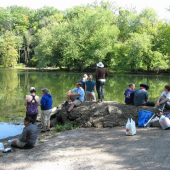
Regional movements toward sustainability recognize that we share a common future. An approach to sustainability education infused with social justice requires joining this common endeavor alongside transformational approaches on individual, community, and larger scales. Transformation occurs most deeply through developing personal relationships with others working in these complex areas. Such relationships humanize abstract issues and build empathy, and they also help learners to better understand and describe ways in which they share similar motivations towards sustainability with others who initially seem quite different from themselves. This paper describes how a residential and experiential undergraduate semester in sustainability studies used personal encounters with a diversity of actors in our watershed to illustrate the range of people who must be considered and included in moving toward regional sustainability. Engaging a broad spectrum of people enables students to acknowledge the need to move forward alongside those who are different from and similar to themselves in various ways, redefining “them” as “us” within the watershed.
Continue Reading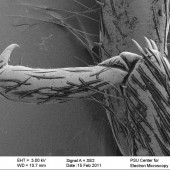
laska Native communities depend on customary and traditional use of natural resources for physical, emotional and cultural sustenance, and community members are concerned about threats to local ecosystems posed by logging, mining, overharvesting, invasive species, fresh and marine water pollution, and climate change. To support one community’s efforts to address these concerns, we have developed an experiential geoscience education program for grades 5 – 12 that draws upon both western science and traditional knowledge. In this program we have found that students are best served by a pedagogy that is founded upon community partnerships, focuses on community needs, reinforces cultural traditions, and presents western science and traditional knowledge as equal and complementary bodies of knowledge. This program has contributed to an increased number of high school graduates pursuing college degrees and has been welcomed by the community as an integral component of cultural revitalization.
Continue Reading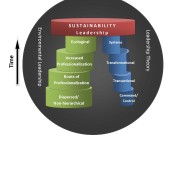
Colleges and universities are rushing to respond to an increasingly urgent challenge: developing the next generation of sustainability leaders. Although diverse in program design, teaching methodologies, assumptions, and skills taught, sustainability leadership programs, with experiential education as a core methodology, are rapidly emerging. This study – the first comprehensive attempt to analyze this phenomenon –explores three primary questions via interviews with 20 program directors and analysis of 50 programs’ materials: 1) What program designs and teaching strategies are sustainability leadership programs utilizing? 2) What principles and assumptions underlie these training methodologies? 3) What are the key requisite skills for sustainability leadership development? The analysis reveals that programs currently focus on network-building, systems thinking and project-based learning. Program leaders define sustainability broadly, with an emphasis on social justice. They focus on communication and engagement in defining leadership. Challenges in program design include the tradeoffs of breadth versus depth as well as tradeoffs in training in specific skills versus analytical methods. Programs tend to either focus on leadership with sustainability as one application or sustainability education with leadership as a subtext. Consistent across programs is the emphasis on peer-to-peer learning. Best practices for program design include employing experiential learning, integrating disciplines, moving beyond sustainability knowledge, building community, expanding the boundaries of transformational leadership, change agent training, and acquiring specific skills. While the growth of sustainability leadership programs appears slated to continue in the near-term, the lack of effective assessment limits the ability to demonstrate success and may be a barrier to future growth.
Continue Reading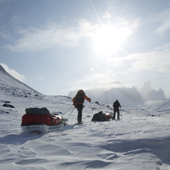
Adventure has been incorporated into sustainability education in a variety of ways, including through outdoor education and, more recently, through technology-enhanced learning. Technology has, for example, expanded opportunities for experiential learning through adventure as well as allowing learners to journey virtually along with explorers and scientists to the far-reaches of the world. This paper offers an overview of how adventure has traditionally been employed in both formal and informal education, discusses the differences between adventure education and adventure learning, shares research conducted on the role of adventure in the GoNorth! Adventure Learning Series, and advances suggestions for how adventure might be employed in sustainability education using distance, online, and mobile learning. The researchers propose the user-driven adventure learning environment (UDALE) as one model that educators and designers can draw from in both formal and informal learning settings as a means to fuse adventure, technology, and sustainability education in a pedagogically meaningful way.
Continue Reading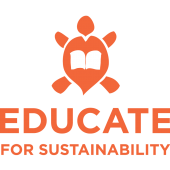
Colleges and universities strive to educate all students for a sustainable future; however, few institutions assess students’ knowledge of sustainability concepts. Hundreds of institutions are currently measuring their overall sustainability performance using the Sustainability, Tracking, Assessment, and Rating System (STARS), which offers a boost to an institution’s overall sustainability rating if that institution conducts a “sustainability literacy assessment.” Largely due to the popularity of STARS, many faculty and staff who are involved with campus sustainability management are seeking an easy-to-replicate assessment process and instrument. Researchers at the University of Maryland developed and conducted a sustainability knowledge assessment to meet the needs of their campus and to contribute a model for the greater higher education community. This paper shares the development process, assessment instrument, significant findings, and recommendations for campuses seeking to conduct their own assessment. Correspondence should be directed to the University of Maryland – Office of Sustainability at sustainability@umd.edu
Continue Reading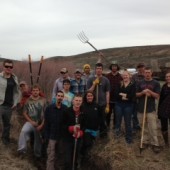
PDF: BrookeMoranSpring2013 Abstract Engaging employees in social and environmental sustainability initiatives “…can improve a business’ bottom line and help it reach its sustainability goals” (NEEF, 2011, p. 14). While some organizations may have sensed this years ago, most are only recently acknowledging how critical employee engagement is to their ultimate success. Presumably, this realization is […]
Continue Reading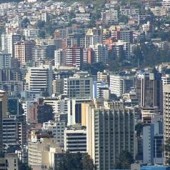
Two developing strands of a multidisciplinary literature provided an impetus for this paper: 1) the emergence of new regionalism, new urbanism, and smart codes that inform urban planning and design principles and practices for environmental sustainability, and 2) the diffusion of telecommunication and multi-media technologies that facilitate implementation of pedagogic principles in the “classroom.” The emerging urban planning and design paradigms anchor environmental sustainability issues firmly in place and space with an emphasis on the physical form of cities and regions, which, due to induced vehicular travel, is linked to greenhouse gases with consequences for climate change. Innovations that enhance learning in the classroom or the community increasingly embed and diffuse telecommunication and multimedia technologies. The intersections of urban sustainability, planning, pedagogy, and technology are briefly reviewed in this paper. It turns out that urban planning and design paradigms—particularly those with an emphasis on systemic knowledge, holistic views of both the natural and built environments, collaboration, communication, and reflective practice—synergize with environmental sustainability goals. Furthermore, these very features are ingredients for effective education for urban sustainability, particularly in conjunction with advanced telecommunication and multimedia technologies.
Continue Reading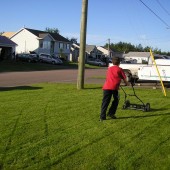
A case-study methodology was used to explore the processes of change as experienced by 18 New Brunswick (Canada) families attempting to lead a more eco-sustainable lifestyle as part of a 6 month long provincial initiative called the NB Family Eco-Challenge. Cross-case thematic analysis of findings revealed the emergence of certain conceptual themes related to families who successfully adopted collective environmental actions. For instance, we note the presence of certain applied competencies in these families, such as a capacity for planning, openness to change and collective efficacy. We also noted that families who succeeded in integrating collective environmental actions shared biospheric values and tended to maintain their chosen actions when part of a support network. Based on these findings, this article concludes by outlining the lessons learned in terms of their potential for a possible educational program for families looking to adopt a more eco-sustainable lifestyle.
Continue Reading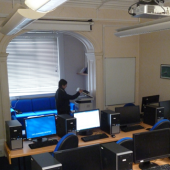
This study investigated the current energy use perceptions and practices of staff and students within five buildings at the University of Sheffield, UK. A series of focus groups with staff and post-graduate representatives from these buildings explored occupant awareness of energy consumption, perceived level of control over energy use, priorities for reduction and the perceived facilitators and barriers to reduction. Overall, personal awareness and attitudes about the need to conserve energy, the perceived actions and opinions of other users (including University authorities) and perceptions of control over the ease and opportunity to reduce energy consumption were perceived by occupants to relate to whether they would intend to conserve energy in University buildings. Recommendations for encouraging energy conservation focus on engendering greater occupant responsibility for conservation by providing a clear conservation message, participating in energy reduction schemes and providing greater energy usage information. Few papers have investigated occupant understanding of energy use in UK University and Higher Education buildings, despite large reduction targets in the sector. This paper recognises the importance that staff and student engagement will have in the successful achievement of these targets and explores their insights and perceptions.
Continue Reading
Interviews with undergraduate students were conducted as part of a follow-up to a survey soliciting information about student engagement in sustainability at a small upper Grea.t Lakes public university. The environmental psychology theoretical foundation for the study presented the potential interdependent role of social and physical conditions to support environmental behavior change. Twelve undergraduate students were interviewed with a goal of gaining additional insight into daily student engagement in sustainability. Hycner’s (1985) guidelines were used for the phenomenological analysis of the interview data. Data were recorded, transcribed, and analyzed. The key finding was an affirmation of the idea that we must identify and eliminate barriers in order to support an increase in daily student participation in sustainability. Participants noted convenience as a key factor to consider. Numerous references to “back home” remind us that we need to make our campus function more like a community with systems that support engagement. Reflective analysis of all of the findings leads to a discussion of how this particular university can achieve the intent of its core value of sustainability. It is proposed that this university put more energy into changing norms than changing attitudes. Heberlein’s (2012) behavior change guidelines are used to provide a strategy for addressing behavior change via an emphasis on normative behavior. Facilitating sustainability actions as normative behavior may be an effective first step in long-term attitudinal change.
Continue Reading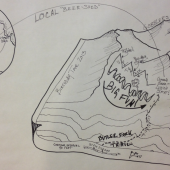
The socioecological challenges we face have never been so complex, so intractable, and so urgent. And while both justice-oriented education and education for sustainability are growing in colleges and universities across the United States, normative perspectives of outdoor experiential education have fallen embarrassingly behind. In this paper, we offer critical sustainability as a conceptual basis for engaging students in the beauty, perversity, and complexity of our world. Critical sustainability, integrating sociopolitical systems of privilege and oppression with the socioecological imperatives of global health and justice, provides an exciting and promising pedagogical direction. With this conceptual framework, we explore perspectives of “nature,” placefulness, and our multiple, overlapping subjectivities as students, educators, and engaged citizens. Our task as outdoor educators is to bring the faraway nearby and inspire students to engage in the myriad challenges we face as individuals, citizens, and as members of a global ecological community. We conclude by offering place mapping as a pedagogical technique to support elements of critical sustainability in outdoor education settings and beyond.
Continue Reading